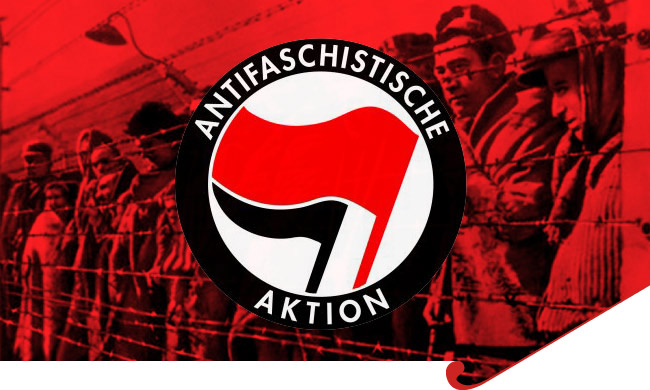
In Russian mainstream media, turn of the Nizhni Novgorod was handled with little revealing headlines - "Case of Nizhni Novgorod anti-fascists was returned to investigators". Thus few understood, that as a matter of fact this was perhaps the sweetest victory of Russian anti-fascist movement this year, this far.
It is very unlikely, that the case will return to court one more time. As it usually happens, judge was not brave enough to point out the criminal deeds of police. Most likely the case will be quietly buried during the new investigation. And nobody will be responsability for the torment and uncertainity, to which accused have been subjected during last one and half years. And to which they will be subjected for undefined period of time still, expecially those two who were forced to go underground and to leave their hometown.
But even still, I consider this as an exceptionally sweet victory. Because it was almost impossible to mobilise people behind this campaign. It is one thing to work under framework like the Khimki struggle, or when an anti-fascist everyone know, such as Alexey Olesinov, is being accused. It is a whole another thing to defend people from a provincial town, of whom almost nobody knows, and who are not jailed due to their participant to a significant protest movement, but merely because state wants to destroy any smallest resistance whatsoever.
I would not say that movement for Khimki hostages was a mass movement, but at least there was some movement, I never felt like like nobody cared. But for Nizhni Novgorod comrades, even in Moscow our march could only gather around 15 people. In autumn of 2011 it was alread obvious, that it made no sense to announce yet another "days of action", and we had to concentrate to spreading information and to fundraising.
And it became the costliest case during the 9 year history of the Anarchist Black Cross of Moscow. Even though it was obvious also for the liberal human rights activists that the case was a straight up frameup, "Agora" human rights association did not provided a lawyer. Only they know the reasons, but I suppose they simply did not have money at that point. Savings of local Nizhni Novgorod activists were exhausted after first half years of the investigation. They managed to work hardly to gather some meagre means after that, for which they should be held in esteem - at times it happens, that accused fall down to a total apathy during investigations. Eventually, when all the money was exhausted, Union of Political Prisoners, Memorial and Agora all contributed to travelling costs of the lawyers. But ABC Moscow ended up spending more, than all of these organisations alltogether. We spent money money from our own fund, but also helped to transfer money from benefit events organised abroad, for example in Bruxelles and London.
This was the first time during history of our group, when we had such a responsability. Before, we always preferred to supporting "many but little" to "few but lot". Around five years ago, we usually contributed hundred euros to a case. In all of the cases we were working on before Nizhni Novgorod, main brunt of the costs was on relatives and friends of the accused - we could contribute just a very small share.
We decided to pay Dmitry Dinze for Pavel Krivonosov, because Krivonosov was accused with the "extremist clause" from the beginning, and differently from Bystrov, who had a family acquintance lawyer, Krivonosov had only an official state lawyer during the first half years.
Other two accused, who were staying in Nizhni Novgorod, were giving testimony and demoralised, thus we concentrated to supporting Krivonosov and Bystrov.
Dmitry is a famous lawyer, who had success for example in defending members of the Voyna-art group. It was not an easy decision to get Dinze involved - he is way more expensive than a provincial lawyer, his method demands a plenty of expertises which all cost money, and each of his travels to Nizhni Novgorod costed some serious money - and as the case got prolonged, travelling costs were mounting. And it was obvious, that if we select Dinze for Krivonosov, we would not have enough money to change lawyer of Bystrov if it was necessary. But in the end, family acquintance lawyer was much more better than such lawyers usually are. And it was definitely a right decision to pick Dinze, it was much due to his efforts that the case collapsed in the court.
Nizhni Novgorod is not Moscow, nor St. Petersburg, and we were afraid that it is a truly wild perifery, in which judges are completely controlled by police force and other local authorities, and the whole rotten system works faultlessly in order to jail whomever authorities want to jail. But it turned out it was not like that - most outrageous juridicial miscarriage is yet not possible in Nizhni Novgorod, or at least not always.
It is often sad, how people consider lawyers to be ultimate saviours. How people are only counting on their lawyers, fulfilling blindly even most stupid advice, such as to be low key, even when it is obviously a political case. But the case in Nizhni is a practical example, that a good lawyer may do a lot, even when there is no momentum to build a strong movement on a national or international level around a political case. Of course it is more empowering to win through a mass movement and pressure from below, but any kind of victory is better than a defeat.
Antti Rautiainen
(previous articles on topic: https://avtonom.org/en/nn)
